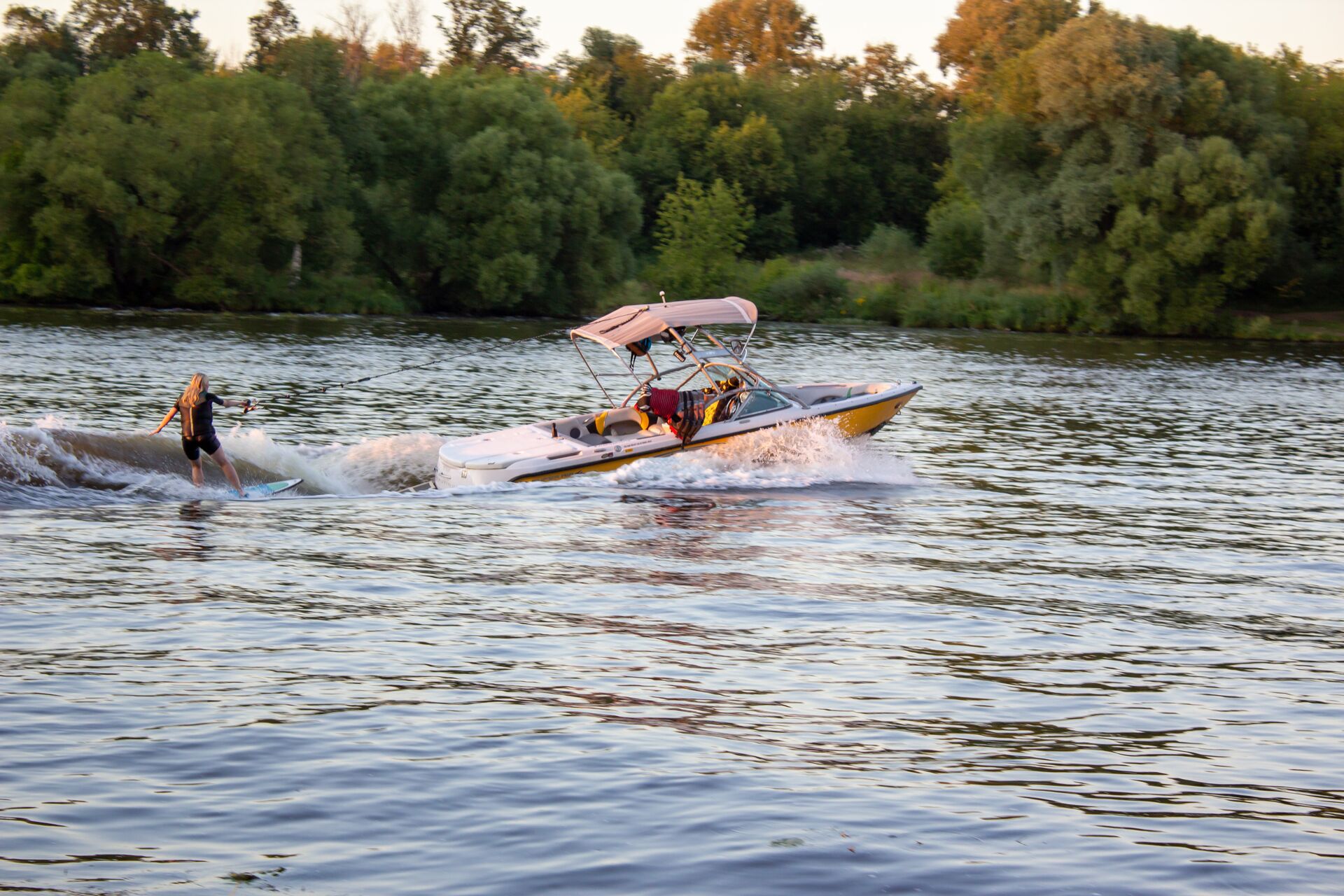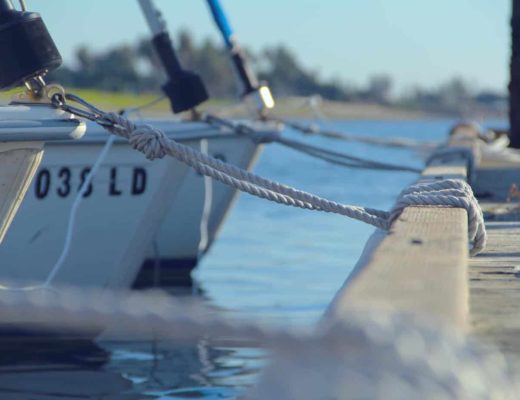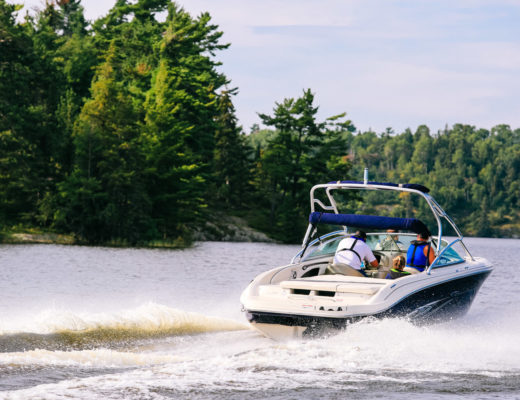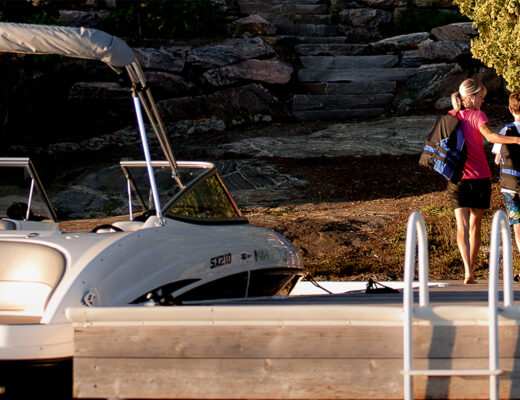
Does Delaware Require a Boater Education Card?
Yes! Delaware requires all boat operators born on or after December 31, 1977, to complete a boating safety course and have a boater education card. The course must be approved by the Delaware Division of Fish and Wildlife.
After getting your card, you must carry it at all times when operating a boat. However, anyone with a valid Bay pilot’s license, Delaware River Captain’s, or the equivalent is exempt.
Additionally, you must be at least 14 years old to operate a personal watercraft (PWC), and an adult must be on board when a 14 or 15-year-old is operating the watercraft. PWC operators 16 years of age who hold a boating safety education certificate can operate it without adult supervision.
Delaware Life Jacket Requirements
When boating in Delaware, you must have at least one U.S. Coast Guard-approved wearable (Type I, II, or III) PFD or lifejacket readily available for each person on board. You must also have at least one U.S. Coast Guard-approved Type IV PFD — either a seat cushion or ring buoy — if the vessel is 16 feet long or longer.
There are a few exceptions to this requirement, including:
- Kayaks and canoes
- Personal watercraft
- Inflatable rafts
Delaware boating law also requires the following:
- Anyone being towed behind a vessel is considered “on board” and must wear a PFD.
- While underway, all PWC occupants must wear a life jacket.
Additionally, all passengers and boaters twelve years old or younger must wear an approved Type I, II, III, or V PFD at all times while the vessel is underway. However, if a child is in an enclosed cabin or below deck — or if the vessel is at anchor or moored — this rule does not apply.
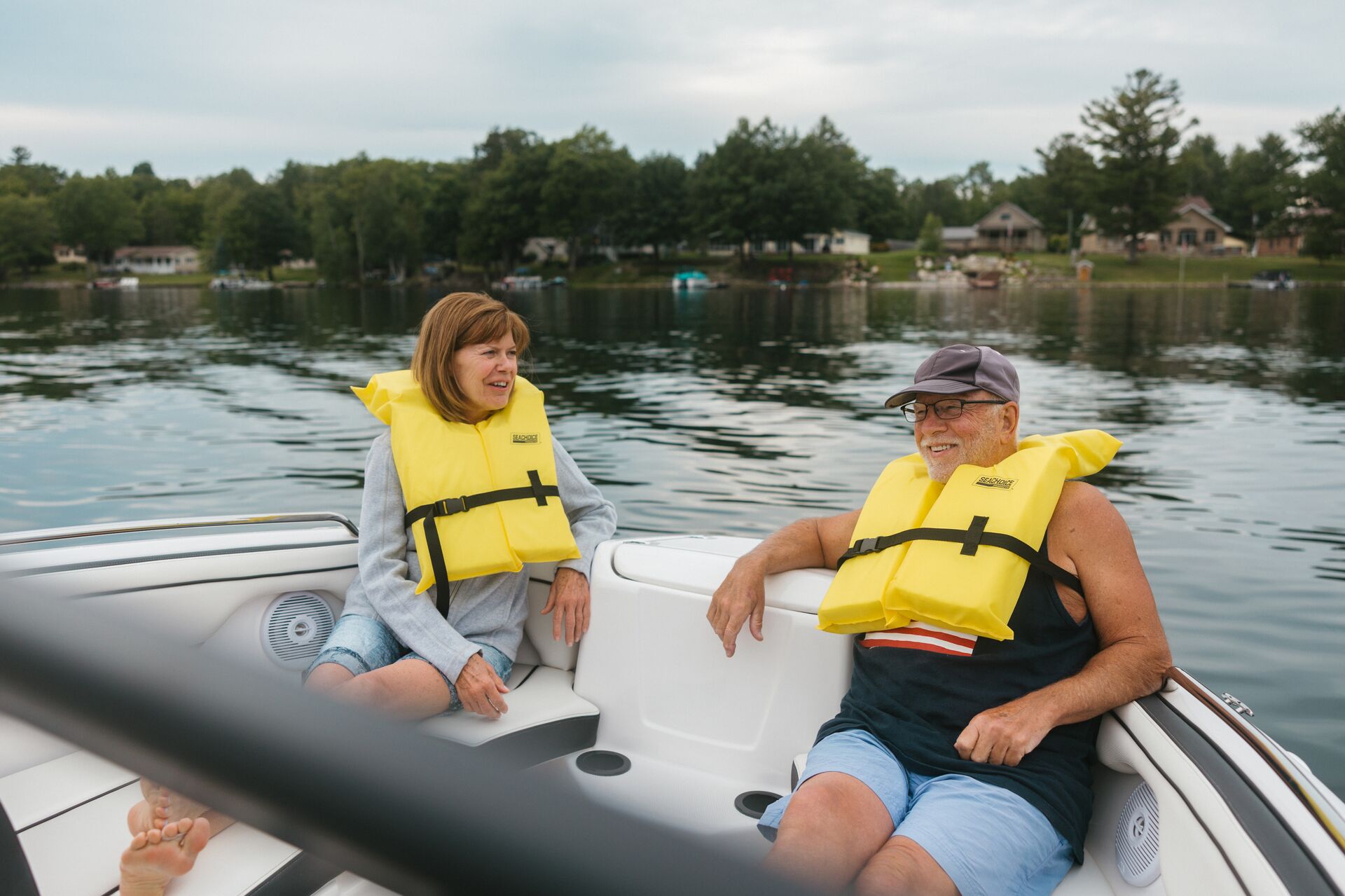
Boat Registration Requirements in Delaware
To legally operate a boat in Delaware, you need a Certificate of Number (registration card) with validation decals. When operating a boat, the Certificate of Number must be on board and available for inspection by an enforcement officer.
A few exemptions to this regulation include:
- Boats documented by the Coast Guard
- Non-motorized boats
- Boats registered in another state or country while using Delaware’s waters for 60 days or less.
You can get validation decals and the Certificate of Number by submitting an application with the appropriate fee to any authorized licensing agent. Boat registrations are valid for 1-3 years (at the owner’s choice).
Registration Number and Decal Placement
Where should you place the decal and number on your boat? The state of Delaware tells you!
Placement should follow these instructions:
- The numbers must be painted, permanently affixed, or applied as a decal to each side of the boat’s bow. Do not display any other numbers in this area.
- The numbers must be in bold block letters and at least three inches high. They must also be in a color contrasting with the color of the boat and should read from left to right.
- Separate the numbers from the letters with a hyphen or by an equivalent space.
Additionally, validation decals must:
- Be affixed on both sides of the boat.
- Be displayed in line with and within six inches of the registration number.
- Either follow or precede the registration number.
Lastly, if the decals have expired, they must be removed from the boat.
Other Registration Information
Boaters must notify the Department of Natural Resources and Environmental Control (DNREC), Division of Fish and Wildlife Enforcement, within 15 days if:
- A boat has been stolen or recovered.
- A boat has been lost, abandoned, or destroyed.
- The owner has a change of address.
- Ownership of the boat is transferred.
What happens if you destroy or lose or destroy your Certificate of Number or decals? Apply to the DNREC Division of Fish and Wildlife (or an authorized licensing agent) for duplicates and submit the appropriate processing fees.
Boating And Alcohol
Boating under the influence, or BUI, is a serious offense in Delaware. When on state waters, it is unlawful and dangerous to operate a vessel while under the influence of drugs, alcohol, or a combination of the two.
Boaters are considered to be “under the influence” of alcohol when the blood alcohol concentration (BAC) is 0.08% or more. To drive “sober,” this level of BAC must not be detected within four hours of which the vessel was operated.
Operating a boat under the influence carries heavy consequences, including:
- 1st offense: Violators face fines of up to $1,000 and up to six months imprisonment.
- 2nd offense: Violators face fines of up to $2,000 in fines and up to 18 months in prison.
- 3rd offense: Violators are subject to fines of up to $3,000 and up to 24 months imprisonment.
If you are under the age of 21 and convicted of BUI, you may face the mandatory completion of hours of public service and additional fines.
Additionally, boat operators on Delaware waters have given “implied” consent to a breath or blood test. These tests determine the concentration of alcohol or drugs in the body. If you refuse the test, your boating privileges may be revoked for one year.
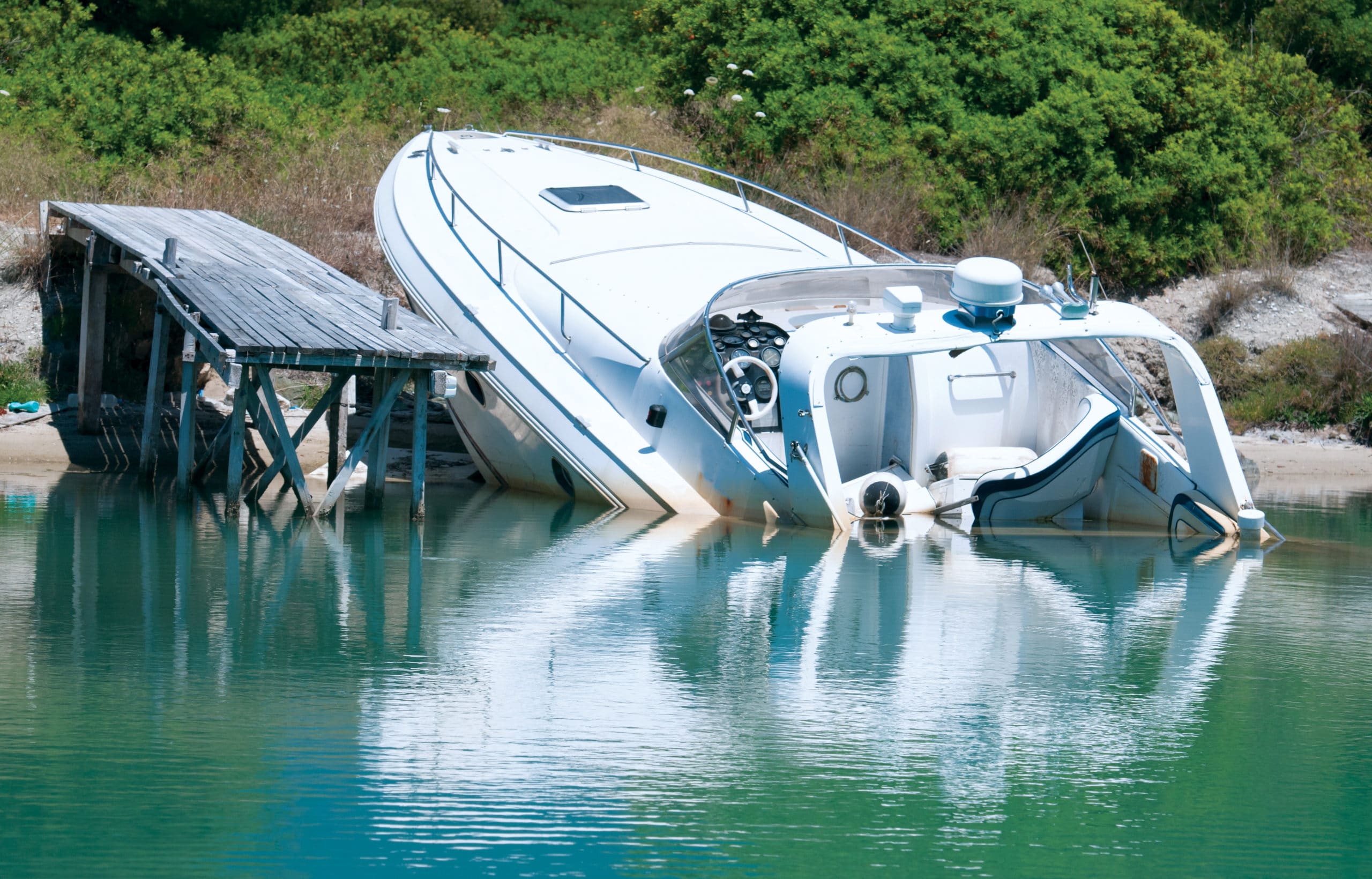
Delaware Boating Laws for Accident Reporting Requirements
If you’re involved in a boating accident, you must report it in writing to the Delaware Fish & Wildlife Natural Resources Police. Accidents involving disappearance, death, or injury also require notification using the quickest means possible.
Reporting regulations also include the following scenarios:
- If a person is injured and requires medical attention beyond first aid or disappears as a result of the accident, you must notify Delaware Fish & Wildlife immediately. You must also report the accident in writing to Delaware Fish & Wildlife right away.
- If a person dies as a result of the accident, you must notify Delaware Fish & Wildlife immediately. You must also report the accident in writing within 24 hours.
- If damage to any property or the vessel exceeds $500, you must report the accident in writing to Delaware Fish & Wildlife within five days.
To provide a written report, use an accident report form supplied by Delaware Fish & Wildlife.
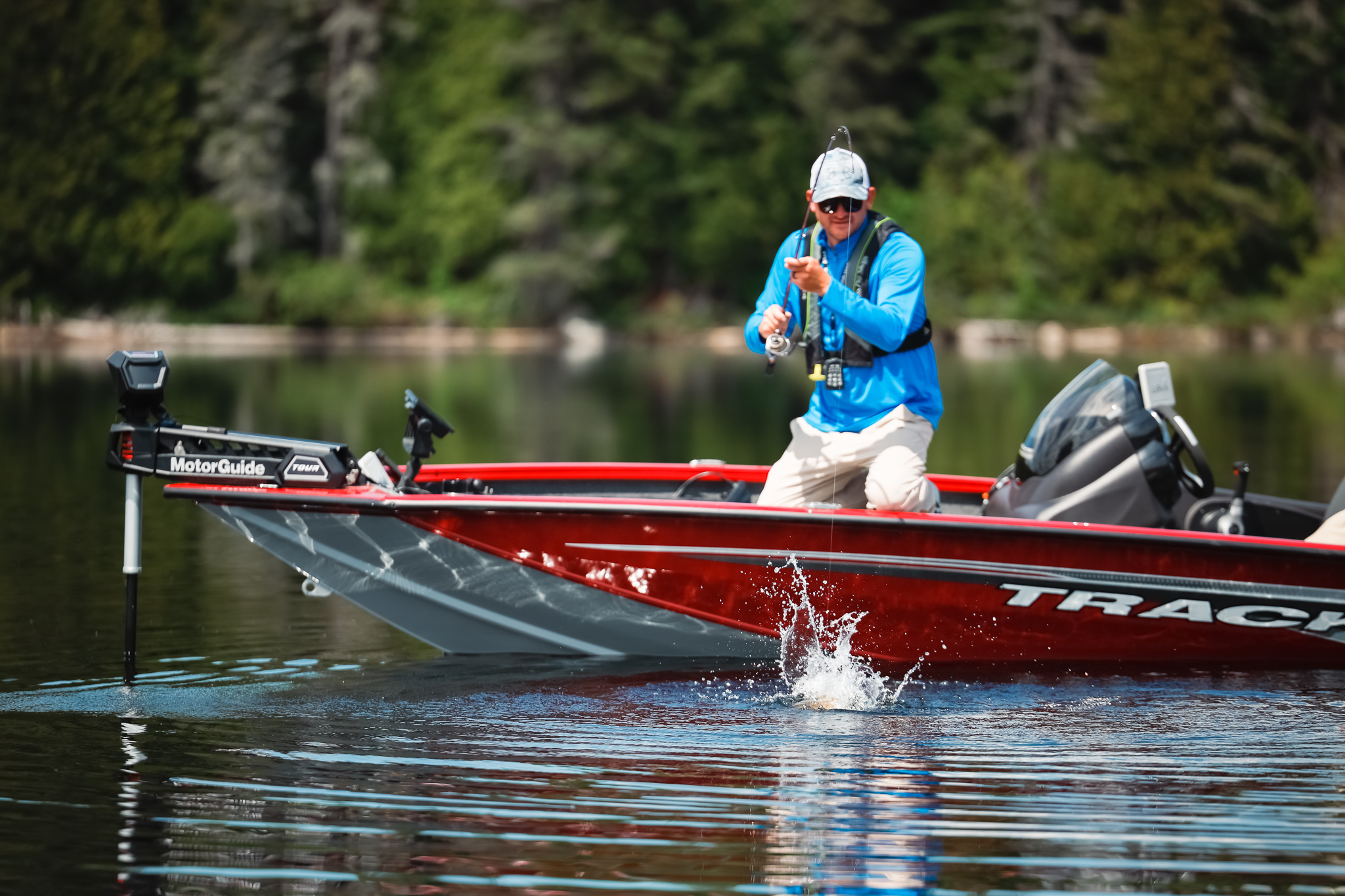
Stay Safe and Follow Delaware Boating Laws When On the Water
We hope this guide helps you understand how to comply with Delaware boating laws and regulations! Following the rules leads to more fun adventures on the state’s waterways.
Before heading out, make sure you’ve also learned boating safety essentials. What you can learn in an online boater education course through BOATsmart! can help protect you and others on the water!
First published in May 2017. Content most recently reviewed and updated for accuracy and relevancy October 21, 2024.

